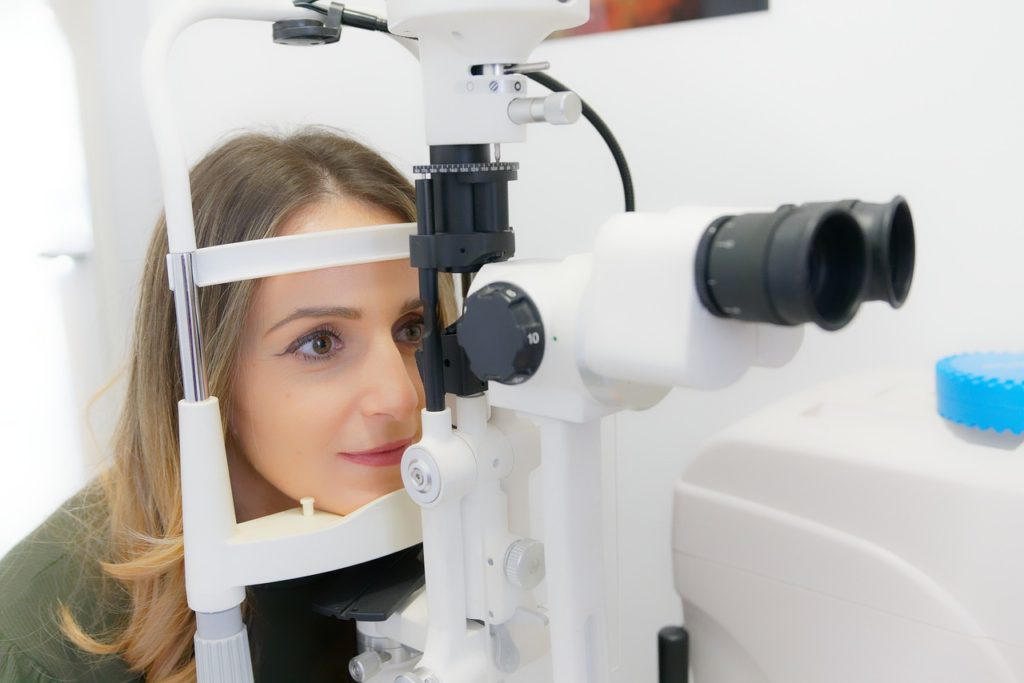Your vision is one of the most important senses you possess. After all, it’s how we experience our world and interact with others. That’s why it’s so important to take proactive steps to protect this sense, including scheduling regular eye exams. Eye exams can help detect problems early before they become more serious.
Dr. Gibran Khurshid will explain what an eye exam entails, why it’s crucial for your well-being, and provide detailed recommendations for maintaining good ocular health long-term.

Why Regular Eye Exams Are Essential For Your Health And Well-being
Our eyes are our windows to the world, and we must care for them. Regular eye exams are essential for our health and well-being. Apart from detecting vision problems, they can also discover underlying conditions that affect our eyesight as well as general health, like diabetes, high blood pressure, and even cancer.
These exams can be life-changing, preventing potential vision loss by catching any problem early on. It’s recommended that adults should have an eye exam every two years, and those with existing conditions or over 60 years old should consider getting checked annually. Don’t take your eyesight for granted; prioritize your health and get a check-up today.
Questions To Ask Your Eye Care Provider Before An Exam
Your eyes are incredibly important, and regular eye exams are a crucial element in maintaining good eye health. However, not all eye exams are created equal. That’s why it’s important to ask your eye care provider the right questions before your exam.
Asking about their qualifications, experience, and what tests they will perform during your exam can give you a better understanding of what to expect and ensure that you receive the best possible care.
Additionally, you may want to inquire about how often you should schedule appointments, discuss any specific concerns about your eyes, and ask about any potential changes to your vision that you should be aware of. By taking the time to ask the right questions, you can feel more confident and informed about your eye health.
How Early Detection Of Eye Disease Can Save Sight
Our vision is one of our most precious senses. Yet, we often take it for granted, forgetting that eye diseases can cause great damage and, in some cases, even lead to blindness. This is where early detection comes into play.
By visiting an optometrist regularly and checking your eyes, you can catch any eye problem in its early stages and take preventative measures to stop it from worsening. With the latest technological advancements in eye care, doctors can detect subtle changes in your eyes, sometimes even before symptoms appear.
Early detection means a better chance of treatment success and a greater likelihood of preserving precious eyesight for a lifetime. So schedule an eye exam today – it could be the most important thing you do for your future vision.
Tips For Caring For Your Eyes Every Day To Help Maintain Vision
Your eyes are one of the most important organs in your body, and it’s crucial to take care of them. By following a few simple tips, you can help maintain your vision and prevent eye problems.
The first and foremost step to caring for your eyes is getting regular eye exams. A comprehensive eye exam can catch any issues early on, allowing for early treatment. Wearing sunglasses with UV protection, eating a diet rich in nutrients that are good for your eyes, and washing your hands before touching your eyes are other easy ways to care for your eyes daily.
It’s also crucial to give your eyes a break from screen time every once in a while and adjust your workstation and computer settings to reduce eye strain. Remember, preventative measures are key to keeping your vision strong and healthy for years.
Final Thoughts
Regular eye exams are essential for your health and well-being, particularly regarding early detection of eye diseases that could lead to blindness. Remember the important questions to ask before an exam and how insurance may cover the cost.
Your optometrist will examine your vision and eye health, but you can stay vigilant with daily eye care. So don’t forget to keep some things in mind when preparing, like avoiding contact lenses on the day of your exam or remembering to bring a list of all medications you’re taking.
Above all, remember that taking steps daily to protect your vision can go a long way toward maintaining healthy eyesight for years. Don’t wait for something bad to happen; instead, schedule an appointment today and take action for better sight and better life.